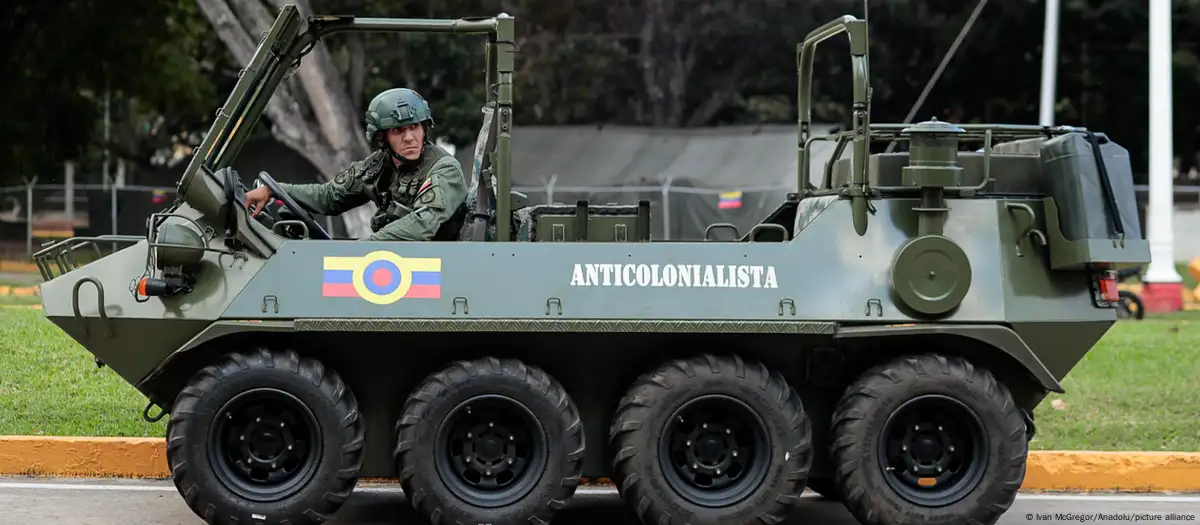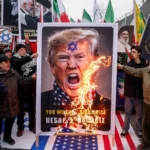
The White House would hardly have support from other countries. But, for experts, discussion could end up relegated to the background.
A possible military intervention in Venezuela by the United States (USA), ventilated due to Donald Trump’s offensive in the Caribbean, would probably require a violation of international law, which sets the rules on when a country can attack another or not.
For experts, it is difficult to imagine that the White House would obtain the approval of other countries for a movement that, ultimately, would trigger the first international conflict on Latin American soil in 30 years.
As a rule, international law prohibits wars between countries. The Charter of the United Nations, for example, urges its members to resolve their disputes by means that do not endanger peace, security or justice. Countries must refrain from resorting to the threat or use of force against the territorial integrity or political independence of another State.
The Nuremberg trials consider planning, preparing, initiating or carrying out a war or aggression that violates international guarantees as a crime against peace. Likewise, UN General Assembly resolutions prohibit the use of force, aggression, military occupation or war to resolve differences between nations.
War on drug trafficking
Exceptions, however, occur when there is support from the United Nations (UN) Security Council or a country defends itself against a previous attack.
“The latter would probably be the argument used (by the USA), but it would be very forced”, assesses Stefan Peters, professor of International Relations and Peace Studies at the Universidad Justus Liebig University, in Gießen, Germany.
The White House launches military actions in Caribbean waters, with support from Trinidad and Tobago, under the auspices of a war on drug trafficking.
“Trump’s argument is that groups in Venezuela are narco-terrorists and, with that, he wants to legally legitimize their actions in the Caribbean. The question, for me, is who would support an action if it were illegal”, asks political scientist Sabine Kurtenbach, president of the German Institute for Global and Area Studies (GIGA).
She also argues that any eventual entry into American territory would not actually be a consequence of drug trafficking. “Venezuela plays a very small role in international drug trafficking. The goal would be to overthrow [o presidente da Venezuela] Nicolás Maduro, very much in the historical style.”
High risk
In the case of Venezuela, analysts say that a ground intervention does not seem feasible, but they see other possibilities, from the bombing of drug trafficking targets to an operation to remove Maduro from the national territory.
The topic currently belongs to the realm of speculation. The last international conflict in Latin America was the Cenepa war, between Peru and Ecuador in 1995, after the Falklands war, between Argentina and the United Kingdom, in 1982.
The risks for the US in this case, however, would be high. “Entering and staying three days until the president surrenders would not work. In addition to the Army and government militias, there are numerous armed actors in Venezuela”, argues Kurtenbach.
Crisis of international law
The world is witnessing a moment of crisis in international law. “Several times we have seen military actions around the world that were carried out in violation of international law,” continues Peters, citing Russia’s aggression against Ukraine as an example.
For Venezuelan political scientist Víctor Mijares, experts in military and security issues, an eventual successful American intervention could push the discussion about its legality to the background. “International law adjusts to fait accompli,” he states.
For the founder and director of the Geostrategos program, at the University of the Andes, in Colombia, on the other hand, “if it goes wrong, it will be considered a political failure and a legal and moral mistake”.
Even if a discussion about the legality of an intervention was overcome or dismissed, the unknown would remain about the duration of a possible conflict and the extent of its effects on the population.
“It is not legitimate to remove a president in any way”, adds Kurtenbach. “Transitions to democracy are more stable when they occur without external interference and through peaceful means.”
Brazil has been asking both parties to maintain peace in South America, having offered itself as an interlocutor between Washington and Caracas.
Originally published by DW on 10/31/2025
By Victoria Dannemann
Source: https://www.ocafezinho.com/2025/11/02/intervencao-dos-eua-na-venezuela-violaria-lei-internacional/

